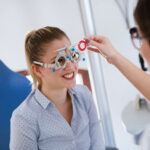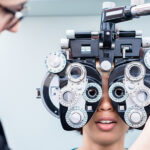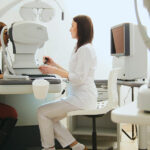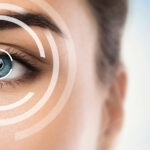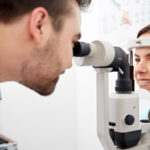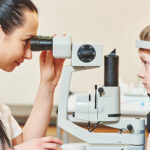Whether you suffer from nearsightedness, farsightedness, or astigmatism, you’ve probably considered other vision correcting options aside from glasses. These refractive errors might be common, but they have the capacity to diminish your quality of life along with your eyesight. When you’re ready to make the switch to better vision with less hassle, there are plenty… Read More
Whether you’re a glasses veteran and you’re ready to make a change or you just found out that you need a vision correcting device, contact lenses can be a convenient solution for many people. Thanks to advancements in technology, contact lenses are more accessible than ever, offering millions of people pristine vision without the hassle… Read More
Do you know that old saying, you are what you eat? Well, it seems like science is proving that it’s more true than ever. The foods you eat can directly help or hinder your health. Many people have begun to even treat food as medicine, recommending particular foods and nutrients to promote good health and… Read More
Does picking out the right pair of glasses always lead to you feeling overwhelmed? You’re not alone. After getting an eye exam, lots of people struggle to figure out the best frames for their face shape. Luckily, once you understand which frames suit certain types of faces best, you can take the guesswork out of… Read More
These days, you can buy anything online. Whether you need groceries, furniture, or that bestseller you’ve been meaning to read, you can have them all conveniently delivered to your door without ever stepping foot in a store. It’s true for eyeglasses, too. With your prescription in hand, you can search thousands of styles online to… Read More
If you’ve been told your vision is perfect, you may wonder, “Why do I need an eye exam?” It can feel unnecessary to take precious time out of your busy schedule, especially if you have 20/20 vision. However, even for those who have 20/20 vision, eye exams are an important part of your health care…. Read More
Nearsightedness is one of the most common eye conditions. It affects many people and their ability to go about their everyday lives. While wearing glasses is the traditional treatment for nearsightedness, other treatment options exist, such as corneal refractive therapy. It’s important to understand how this therapy can improve your vision. The Impact of Nearsightedness… Read More
When it comes to eye health, there’s a big difference between a comprehensive eye exam and a basic vision screening. Comprehensive exams performed by professionals include many different tests, often in a single sitting. Below is a list of the most common eye tests included in comprehensive, professional eye exams: Visual Acuity The classic… Read More
Any time someone mentions an exam of any kind, most people draw back in apprehension. This response is understandable, as the unknown is usually frightening for the majority of people. However, a bit of knowledge on the subject may help alleviate some of the fears. What if you were told the exam would be pain-free… Read More
A lot of us take our vision for granted. Even if we wear glasses or contacts, we may think we don’t need to get routine comprehensive professional eye exams because we’re okay with how our prescription is working for us. The problem with this belief is you may have an eye condition you are unaware… Read More

